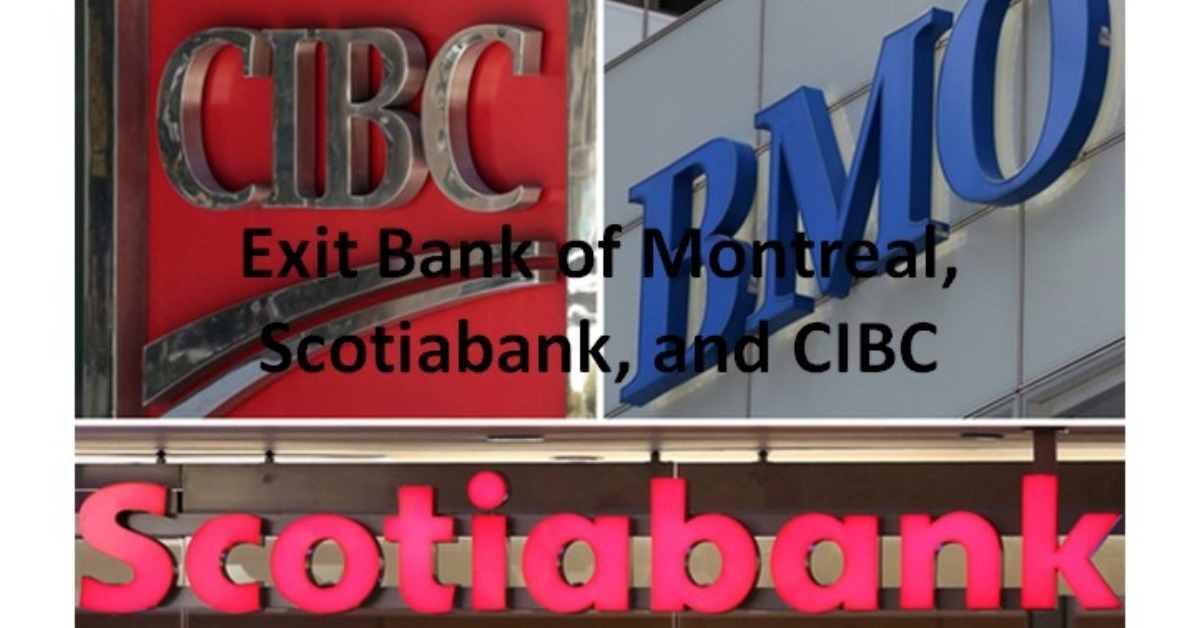
The purpose of this brief post is to disclose that I have exited Bank of Montreal, Scotiabank, and CIBC which are Canada's 3rd, 4th, and 5th largest banks from a market capitalization perspective.
The Canadian Federal government's 2024 Budget proposes to increase the capital gains inclusion rate for capital gains realized on and after June 25, 2024, from 50% to 66.67% for corporations and trusts and from 50% to 66.67% on the portion of capital gains realized in the year that exceed $250,000 for individuals. If there is a silver lining to the proposed tax changes it is that it has forced me to take a closer look at some of the holdings to which I pay little attention.
I am not enamored with most Canadian companies and have focused on purchasing shares in high quality US companies over the past few years. My reasoning is that I think I can generate much more attractive long term total investment returns from US companies.
Following estate and tax planning discussions with our legal and tax advisors, I have reduced exposure to Canadian companies by exiting:
- SmartCentres Real Estate Investment Trust
- Enbridge
- BCE
- Emera
- The Bank of Montreal
- The Bank of Nova Scotia
- The Canadian Imperial Bank of Commerce
Recently, I disclosed my rationale for exiting BCE (BCE Is A Dog With Fleas) and Emera (Eliminate Emera Exposure).
My entire career was in the Canadian banking sector and so I naturally accumulated shares in my employers. While share ownership in the Canadian banks certainly helped me with early retirement in 2016, I now view the Canadian banking sector as unappealing in terms of potential for value creation. There are other industries that are far more appealing from a risk return perspective.
In my January 20, 2023 Scotiabank (BNS) Is A Terrible Long-Term Investment guest post at Dividend Power, I presented why there is a huge disconnect between risk and return when it comes to BNS.
In my April 20, 2023 CIBC Is An Accident Waiting To Happen guest post at Dividend Power, I stated that CIBC comes nowhere close to being an attractive investment.
Subsequent to these posts, I have gradually reduced my exposure to these two Canadian banks and on May 13, 2024 I finally exited Scotiabank and CIBC. Neither was a top 30 holdings when I completed my 2023 Year End FFJ Portfolio Review.
I have not written anything about The Bank of Montreal (BMO) since December 4, 2018. This bank, however, is not much better than BNS and CIBC and I also exited my BMO exposure on May 13.
Despite exiting these 3 banks, I still have exposure to the Canadian banking sector through share ownership in The Royal Bank of Canada (RY) and The Toronto-Dominion Bank (TD). Both have made front page headlines of late (CFO axed at RY and anti-money laundering issues at TD). Nevertheless, I still prefer these banks to the other 3.
Final Thoughts
My Canadian exposure is now limited to:
- Alimentation Couche-Tard
- The Toronto-Dominion Bank
- The Royal Bank of Canada
- Brookfield Corporation
- Brookfield Asset Management
- Brrokfield Infrastructure
- Brookfield Renewable
- Intact Financial
- Canadian National Railway
- Canadian Pacific Kansas City
I wish you much success on your journey to financial freedom!
Note: Please send any feedback, corrections, or questions to [email protected].
Disclosure: I have no exposure to BCE, BMO, CM, BNS, EMA, ENB, SRU.un.
Disclaimer: I do not know your circumstances and do not provide individualized advice or recommendations. I encourage you to make investment decisions by conducting your research and due diligence. Consult your financial advisor about your specific situation.
I wrote this article myself and it expresses my own opinions. I do not receive compensation for it and have no business relationship with any company mentioned in this article.

